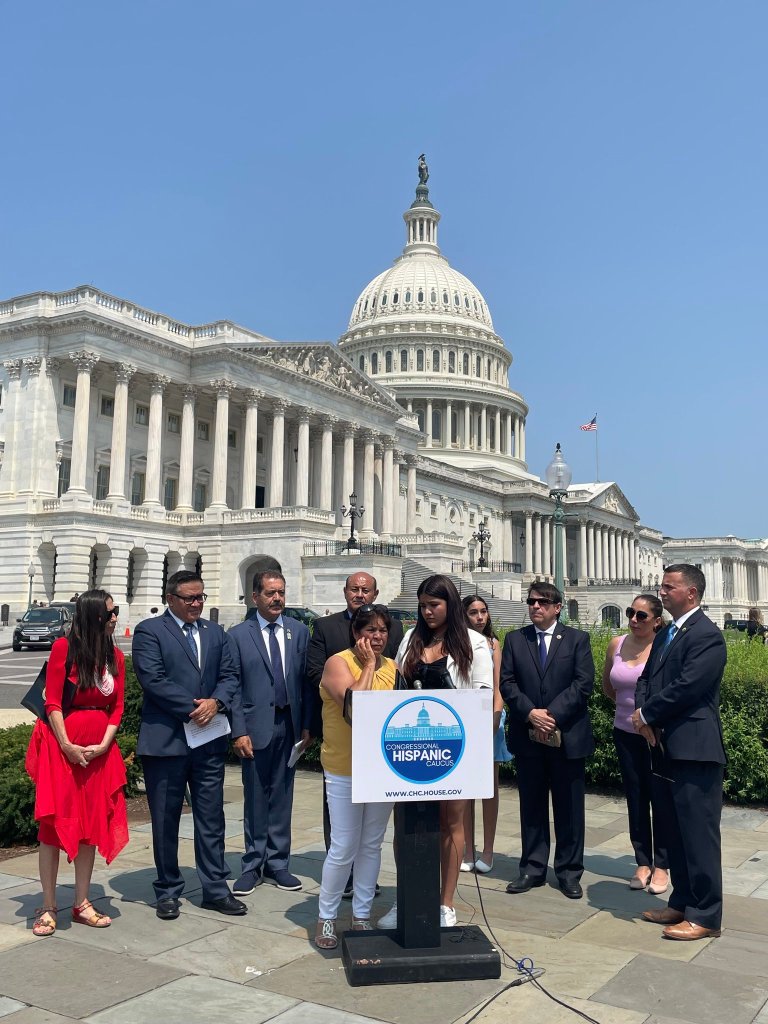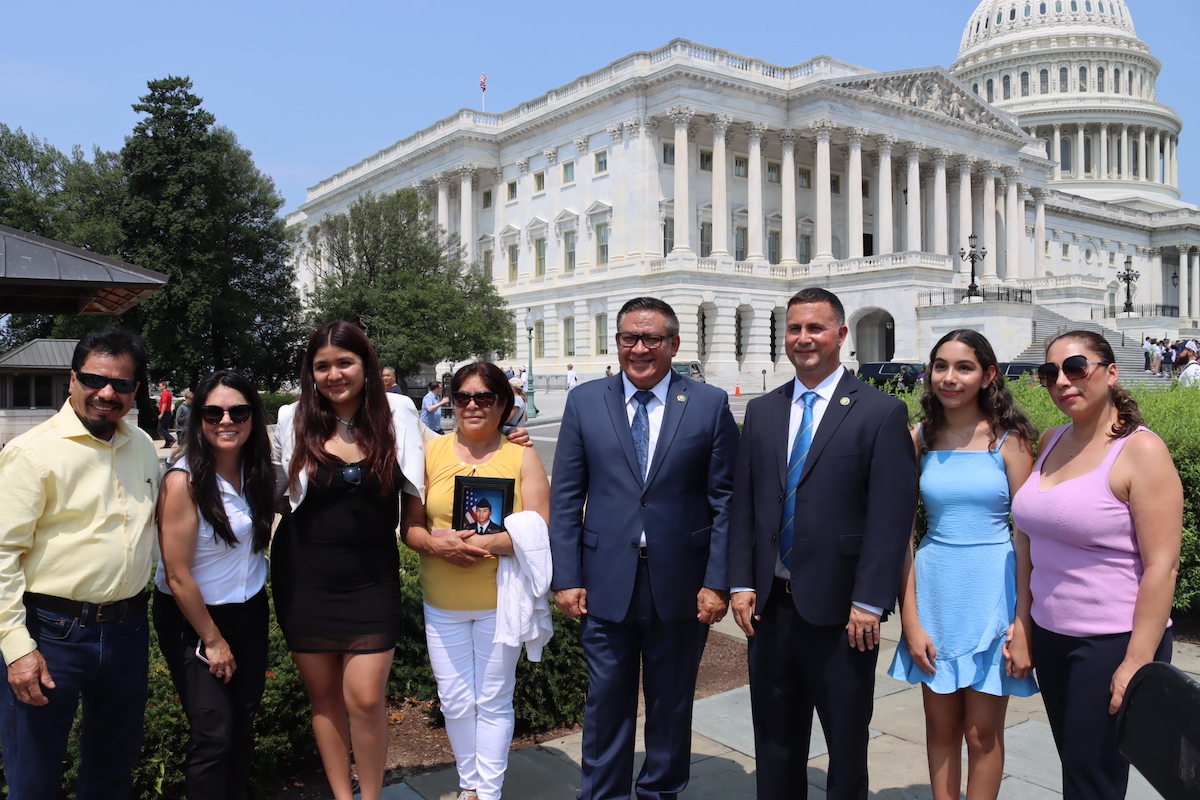Four years ago, “Goleta’s Grandmother” Juana Flores was abruptly deported under the direction of the Trump administration, separated from the life and family she had worked tirelessly to build over a period of more than 30 years. She returned in 2021 under temporary humanitarian parole, but her story continues, as she and her many supporters push for permanent residency.
On Tuesday, Flores found herself at the base of Capitol Hill with her granddaughter Andrea. With the Capitol Building on view in the background, she spoke in support of preventing further deportations and separations of military families such as hers.

The two joined congressmembers Salud Carbajal, a California Democrat, and María Salazar, a Florida Republican, for the first bipartisan introduction of the Protect Patriot Parents Act, which would give military parents eligibility to apply for lawful permanent status.
Flores is the mother of Air Force Sergeant Caesar Flores, who struggled after his mother’s deportation. He celebrated the birth of his first daughter and was ordered to deploy overseas in the time she was gone. “Family is everything to us,” he told the Santa Barbara Independent in a 2021 interview.
With the backing of the entire community — including local officials and a support group dubbed “Team Juana” — Carbajal granted Flores a one-year humanitarian parole in 2021 to reunite her with her husband, Andres, her 10 children, and her (now) 19 grandchildren after she spent two years in her native Aguascalientes, Mexico.
She was the inspiration behind Carbajal’s first introduction of the Protect Patriot Parents Act in 2021. The measure originally passed the House in December 2022 but failed to advance in the Senate.
The bill would allow parents of military members to apply for a green card and help protect undocumented military parents from the looming threat of deportation.
Recent estimates project that there are as many as 80,000 undocumented spouses and parents of U.S. active duty and former military living in the U.S., according to Rep. Carbajal’s office.
“The families of our servicemembers deserve our respect for their sacrifice, not deportation,” said Carbajal. “After working to return Mrs. Flores to the U.S., I turned to writing this bill to protect the family of anyone who steps up to serve in our armed forces from being threatened with deportation.
“I’m glad to have a bipartisan partner in this effort in Rep. Salazar, and as a veteran and immigrant myself, I believe this bipartisan measure will help shape an immigration system that is fair, keeps families together, and recognizes the positive contributions immigrants and their families make to our communities,” he said.
“The brave men and women who serve our country deserve our complete support and protection,” said Rep. Salazar. “The parents and families of those who put their lives on the line to protect us should be honored by a grateful nation, not harmed by our broken immigration system.”
Around the time of Flores’s homecoming, she told the Indy that for most of her two years in Aguascalientes, she felt depressed and alone. “Sure, one might want to go back to their homeland,” she said, “but not in this way.”
However, she continually received support from her family and all corners of Goleta and Santa Barbara — including a legal team of retired Judge Frank Ochoa and immigration attorney Kraig Rice — committed to getting her home as soon as possible. Now, they’re committed to keeping her here.
“Ever since I left [to Mexico], they’ve never left me alone in this,” Flores said.
Flores is now living in the community under the extended protection of humanitarian parole. However, she’ll have to reapply each year if a pathway to permanent residency does not become available.
Paula Lopez, the head of the Women’s Political Committee and a member of Team Juana, said they’re concerned about the possibility of another administration coming into power that may not be willing to extend her parole. If that happened, Flores would once again face deportation.
“That’s why this bill is so important,” Lopez said.
Correction: An earlier version misstated that the event occurred on Thursday.





You must be logged in to post a comment.